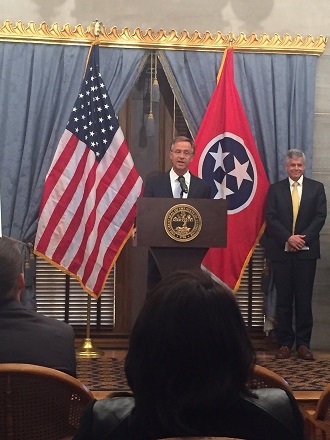by George Farmer, Senior Digital Content Specialist, intermedix, an R1 Company/Member of TN HIMSS Ambassador Team and member of Advocacy Committee
The opioid crisis taking place in the United States is one of the most difficult epidemics of our time.
 Since 2002 opioids have caused more than 49,000 deaths and more than $215 billion in medical costs due to addiction and treatment. Increasing at a rate of 18 percent per year from 2014-2017, the federal government labeled the opioid epidemic a public health emergency in earlier this year.
Since 2002 opioids have caused more than 49,000 deaths and more than $215 billion in medical costs due to addiction and treatment. Increasing at a rate of 18 percent per year from 2014-2017, the federal government labeled the opioid epidemic a public health emergency in earlier this year.
While the opioid crisis is wide spread and present in nearly every state, Tennessee in particular has been hit particularly hard. In 2016, opioids were responsible for 73% of all drug related deaths in the State of Tennessee.
In response, Governor Haslam executed an executive order to establish the Tennessee Commission on Pain and Addiction Medicine Education aimed at developing competences for Tennessee’s medical education institutions to improve curricula around proper pain management, responsible prescribing practices, and diagnoses and treatment of individuals misusing controlled substances. The commission is the latest addition to the Tennessee Together plan to address the opioid epidemic.
In June, Governor Haslam’s office reached out to TN HIMSS to help the commission by lending insight on how the use of information and technology should be incorporated into its core competencies for Tennessee’s medical institutions. TN HIMSS in alignment with the national chapter believes a multi-faceted approach is needed to combat the epidemic. Further, TN HIMSS recommends that resources like Prescription Drug Monitoring Programs should be available to empower physicians with additional information to reduce the over prescription of opioids and increase emphasis on recovery.
After receiving feedback from the TN HIMSS board of directors, on July 26th, the commission announced its final 12 core competencies to enhance the knowledge and effectiveness of Tennessee’s Future healthcare providers. In attendance at the State Capitol for the event was the TN HIMSS Advocacy Committee who helped coordinate the joint initiative with the commission.
As Tennessee continues to grapple with the public health challenges of opioids TN HIMSS looks forward to continuing its support the efforts of Governor Haslam and the State of Tennessee.
For more information on TN Together: https://www.tn.gov/opioids

